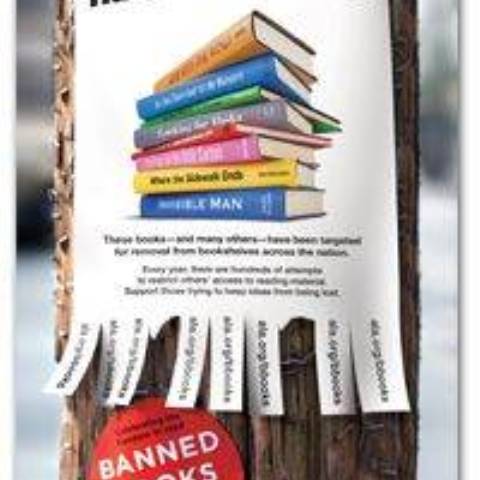

From what I have learned about history; civil rights; and the sociology of technology and the internet, one of the biggest catalysts for widespread change is awareness. The best example I can think of is the recent use of “ALSicebucketchallenge” hashtaggery and a brilliant social media marketing tactic garnered the ALS Association $115 million in donations in two months. And yes, generous hearts all over the country were involved, but first, they had to become aware.
What has all this to do with Banned Books Week 2014? Awareness is everything. To acknowledge Banned Books Week year after year is a reminder that our very existence as a free, enlightened society hinges on the idea of the flow of information combined with the means to understand it. Not everyone has that, and even those that do have it, try to give and take it away. Ironically, this week of banned book awareness, The Los Angeles Times Jacket Copy reported a public school in Texas has suspended seven books from their curriculum:
The Absolutely True Diary of a Part-Time Indian by Sherman Alexie
An Abundance of Katherines by John Green
Siddhartha by Hermann Hesse
Song of Solomon by Toni Morrison
The Working Poor: Invisible in America by David K. Shipler
The Art of Racing in the Rain by Garth Stein
The Glass Castle by Jeanette Walls.
My point is not to disparage anyone who takes issue with the content of a book and decides not to read it. The focus is more on the freedom to read for others and anyone who desires to read a book has access to it.The displays in the library are designed to be eye opening to this ideal. I hope they suggest to you what banning books has always suggested to those who wish to read them:
“Banning books gives us silence when we need speech. It closes our ears when we need to listen. It makes us blind when we need sight.” -Stephen Chbosky